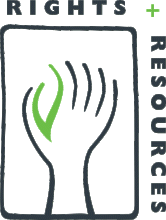Resource information
Land rights are rapidly becoming the new political battleground, central to discussions on climate change, food security, poverty alleviation, corporate sustainability, gender equality, and even democracy itself. As the world attempts to recover financial stability, and as an increasing number of countries in Africa and elsewhere seek to emulate the economic success
of the Asian “tiger economies,” land and other natural resources are seen as the ticket out of poverty. The “resource curse”—an idea previously applied to valuable resources like timber, oil and minerals—now applies to land, too.The private sector, the dominant force in investment and a major political actor in most countries, is a potential source of transformative
change in community land rights—for better or worse. In 2013, some large corporations with low public profiles and secure private finances seemed immune to pressure for change. They included Asian oil-palm companies seeking new land in Africa, and the US food giant Cargill, which Oxfam accused in September of acquiring 30 times more land in Colombia than
is legally allowed.



